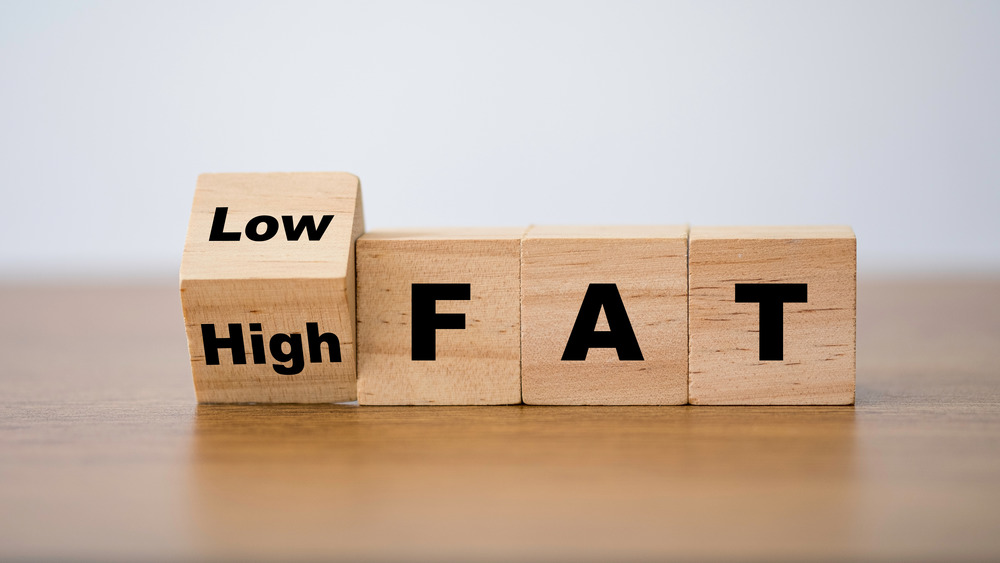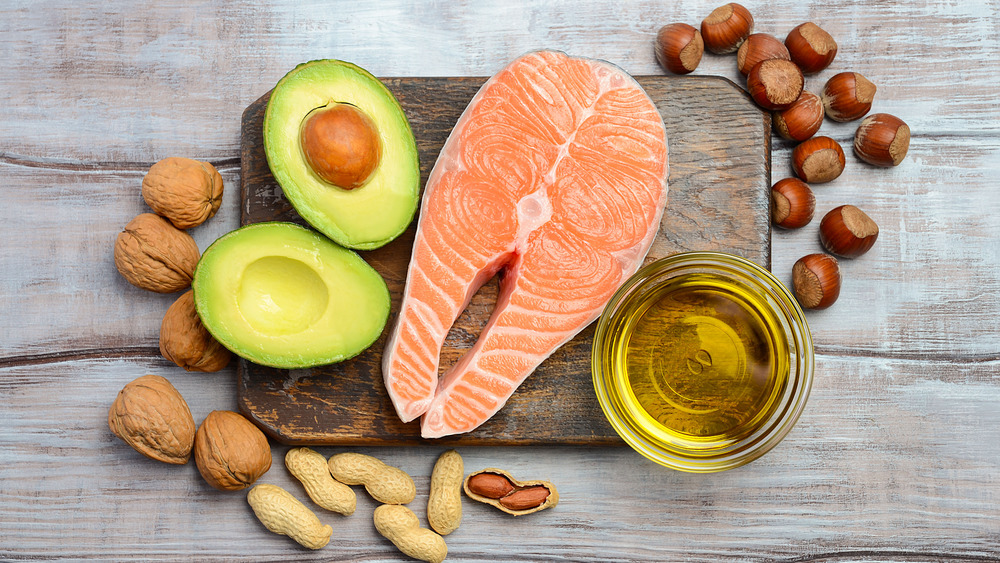Why Fat-Free Food Isn't As Healthy As You Think
It's now been over four decades since health experts first convinced most of the U.S. population that dietary fat was the ultimate villain that was making everyone both overweight and sick. In a relatively short number of years, grocery store shelves were stocked with thousands of new 'low-fat' and 'fat-free' products, which consumers eagerly purchased. The bitter irony is that, as much of the population reduced their fat intake, rates of obesity, diabetes, and chronic illness surged (via Aurora Health Care).
Mary Flynn, a professor of medicine at Brown University, told NPR, "There have been a number of studies done, and there's been no benefit for low-fat diets to lead to better weight loss, and there's no benefit for low-fat diets to lead to less disease." Ouch.
As anyone who's attempted fat-free cooking can tell you, removing fat from food also removes a lot of flavors and textural appeal. To make up for bland flavors, food manufacturers replaced the missing fat with extra sugar, salt, and other additives, which in many cases, not only still had less-than-stellar flavor, but didn't significantly reduce calorie content either. And to add insult to injury, excessive sugar consumption is also linked to a host of health problems, including weight gain.
Good fats are important for good health
In hindsight, most health experts now tell us that the emphasis should be on the quality of fat, instead of quantity. Healthy mono- and polyunsaturated fats, like those found in olive oil and fatty fish respectively, not only help lower 'bad' LDL cholesterol levels, but are also important for overall health, and may even help with weight loss. Jennifer Fitzgibbon, a registered oncology dietitian at Stony Brook Hospital Cancer Center in New York, told Live Science, "If you eliminate fat too much, it can have serious health consequences. Mental health deficits like depression and vitamin deficiencies can occur. The vitamins A, D, E, and K are fat-soluble, meaning the body stores them in fatty tissue and the liver. The intestines need dietary fat to properly absorb these nutrients."
Instead of cutting out fats, make sure that the fats you're getting are high quality. Also, you'll want to avoid trans fats. Trans fats were banned in the U.S. in 2015, but food manufacturers were given several years to completely phase them out of production, and some still circulate. To identify trans fats, read ingredient labels and avoid anything that contains 'partially hydrogenated vegetable oil' (via Harvard Health Publishing).


